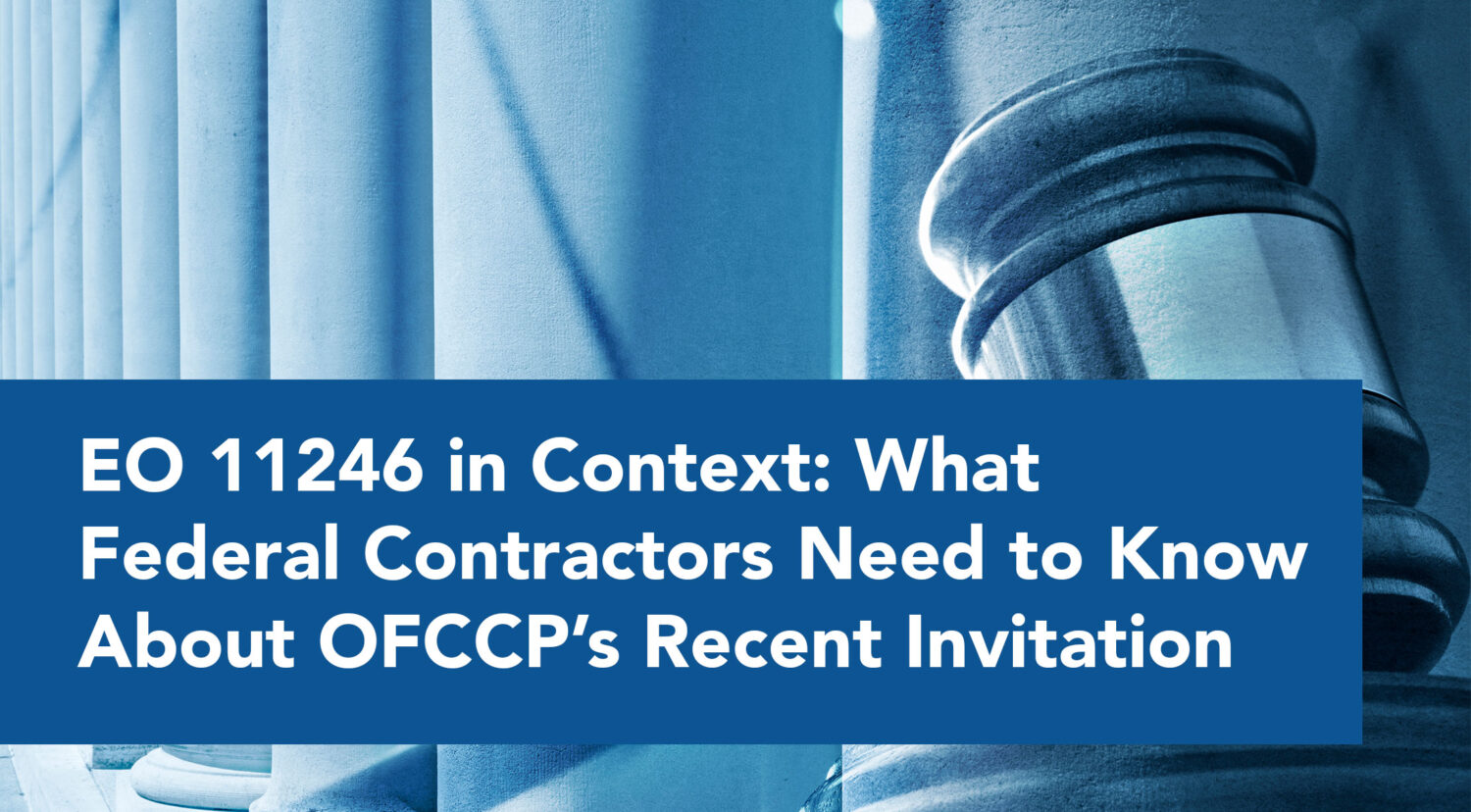

As part of its efforts to improve transparency and promote cooperation with federal contractors, the Department of Labor’s Office of Federal Contract Compliance Programs (OFCCP) recently introduced a virtual compliance help desk. The new tool, launched in August, will help government contractors better navigate the compliance process.
The Contractor Assistance Portal allows users to ask questions and access helpful resources and reference materials. It was spurred after the agency conducted a series of townhall meetings to solicit feedback from contractors and stakeholders in 2017.
“We are very excited to launch the Contractor Assistance Portal so the Office of Federal Contract Compliance Programs can provide more access to compliance assistance resources,” said OFCCP Director Craig E. Leen in a statement. “We want federal contractors to use this tool to ask questions and search answers regarding compliance with the laws and regulations enforced by OFCCP.”
Through the portal users will be able to ask specific questions and access information on common compliance issues and solutions. The OFCCP will also provide companies with compliance guidance materials and resources and share successful strategies employed by other federal contractors.
“OFCCP is committed to transparency in the Agency’s enforcement practices and providing more certainty to federal contractors”, Acting Secretary of Labor Patrick Pizzella said in a statement.
The help desk is the latest effort by the OFCCP to improve the compliance process. In February, the agency, developed a Focus Audit Scheduling Letter, which simplified reviews during audits. Additionally, last September the OFCCP issued a directive detailing the agency’s recent efforts toward improved transparency and cooperation.
The efforts are partly in response to a 2016 report by the Government Accountability Office. According to the report, “[S]takeholders, including some in the federal contracting community, are concerned OFCCP’s efforts are imposing excessive compliance burdens on contractors, including what they perceive as overly broad and unnecessary document and data requests, as well as unreasonably numerous and lengthy compliance evaluations.”
Similarly, in 2017, a Senate committee formally questioned OFCCP audit and enforcement practices: “The Committee is concerned that OFCCP [Office of Federal Contract Compliance Programs] has lost its focus on identifying and addressing real employment discrimination and is imposing excessive compliance burdens on contractors.”
And at a listening session held at OFCCP headquarters last year, several contractors and stakeholders said compliance audits were often “painful, protracted and frustrating.” Additionally, one speaker in attendance complained about an “excessive number of audits in a short period of time” and said his company had received 14 audits in a six-month, an increase that was seven times the one or two audits per year his company had regularly experienced in the past.
In addition to the new virtual help desk, last month the OFCCP also released a series of new compliance guides. These include:
- OFCCP At A Glance, which users to the agency’s mission, the equal employment opportunity laws it enforces, an overview of federal contractor obligations, and workers’ rights.
- What Federal Contractors Can Expect, which provides general expectations that guide interactions between contractors and OFCCP
- Supply and Service Technical Assistance Guide, which provides a general overview of supply and service contractor obligations under the equal employment opportunity laws enforced by OFCCP
- Construction Technical Assistance Guide, which provides a general overview of obligations specific to construction contractors subject to the equal employment opportunity laws enforced by OFCCP
- Educational Institutions Technical Assistance Guide, which provides a general overview of contractor obligations specific to educational institutions under the equal employment opportunity laws enforced
- Postings and Notices Guide & Checklist, which focuses on many of the posting and notice requirements that a contractor must comply with regardless of the size of its workforce
- Applicant Tracking Guide, which provides the definitions for Internet and traditional applicants, identifies applicant records that contractors must keep, and provides other key terms to know
- Section 503 Recordkeeping Guide, which identifies which records must be kept by covered contractors and how long the records must be kept





